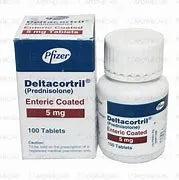Description
Carboplatin is a platinum-containing chemotherapy medicine belonging to the alkylating agents group. It is designed to treat multiple types of cancers by damaging the DNA of cancerous cells, preventing their division and growth. Compared to other platinum agents, Carboplatin is known for its reduced kidney and nerve toxicity, making it a preferred choice in several oncology treatments.
Key Benefits
-
Effective in treating ovarian, lung, breast, bladder, and cervical cancers.
-
Can be used alone or in combination with other chemotherapy drugs.
-
Offers broad antitumor activity across various solid tumors.
-
Reduced risk of severe nephrotoxicity compared to Cisplatin.
How It Works
Carboplatin forms cross-links within DNA strands, which interferes with DNA replication and transcription. This damage prevents cancer cells from multiplying, ultimately leading to cell death. The drug is particularly useful in rapidly dividing cancer cells while having less effect on normal cells.
Dosage & Administration
-
Administered intravenously (IV) by a healthcare professional.
-
Infusion duration: At least 15 minutes.
-
Dosage depends on body surface area, renal function, and treatment protocol.
-
Never self-administer this injection.
Side Effects
Common:
-
Nausea, vomiting, or loss of appetite
-
Fatigue or general weakness
-
Temporary hair loss
-
Mild changes in taste
Serious (report immediately):
-
Myelosuppression: Decrease in bone marrow activity causing low blood counts
-
Nephrotoxicity: Kidney-related complications
-
Neurological toxicity: Numbness, tingling, or loss of coordination
-
Allergic reactions: Rash, itching, or swelling of face/throat
Warnings & Precautions
-
Blood counts, kidney, and liver function must be closely monitored.
-
Avoid alcohol and smoking during treatment.
-
May cause dizziness or blurred vision—do not drive if these occur.
-
Not recommended in patients with severe renal impairment or bone marrow suppression.
-
Use with caution in patients with a history of hearing loss or neuropathy.
Drug Interactions
Carboplatin may interact with:
-
Aminoglycoside antibiotics (e.g., gentamicin) — increases risk of kidney damage.
-
Loop diuretics (e.g., furosemide) — may enhance nephrotoxicity.
-
Anticonvulsants, anticoagulants, and other chemotherapy agents — may alter blood toxicity levels.
Always inform your doctor of all medications and supplements you are using.
When Not to Use
-
Severe renal (kidney) impairment.
-
Myelosuppression (low blood cell counts).
-
Hypersensitivity to Carboplatin, Cisplatin, or other platinum-containing compounds.
Pregnancy & Lactation
-
Pregnancy: Use only if clearly necessary; may harm the unborn baby.
-
Lactation: Not recommended. Carboplatin may pass into breast milk.
Storage
Store below 25°C, away from heat and direct light.
Keep out of reach of children. Do not freeze.
Quick Tips
-
Treatment should always be done in a controlled clinical setting.
-
Maintain proper hydration during therapy.
-
Monitor for unusual bruising, bleeding, or signs of infection.
-
Report any numbness, confusion, or hearing loss promptly.
Disclaimer:
This content is for informational purposes only and is not a substitute for professional medical advice. Always consult a qualified healthcare provider before starting or discontinuing any medication.











Reviews
There are no reviews yet.